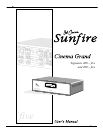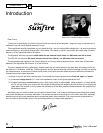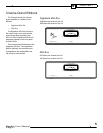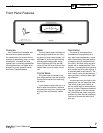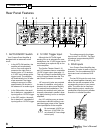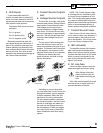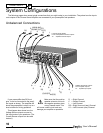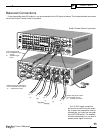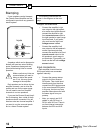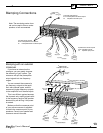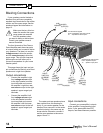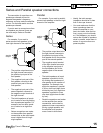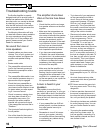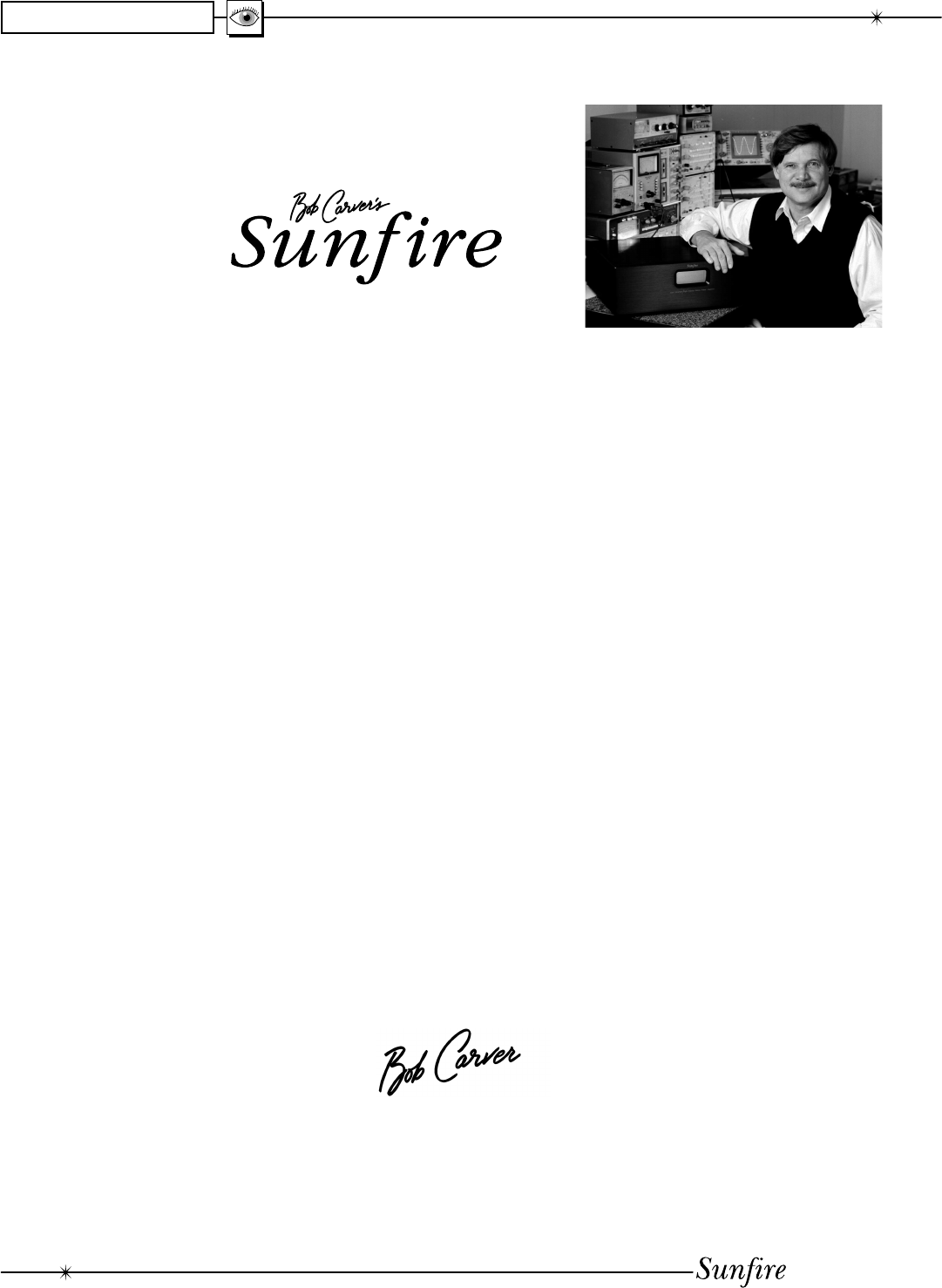
User's Manual
4
CHAPTER 1
Dear Friend:
Thank you for purchasing my SunÞ re Cinema Grand Þ ve channel power ampliÞ er. I hope you enjoy it and the music it
makes as much as I have enjoyed creating it for you.
This magniÞ cent ampliÞ er represents my very latest thinking - and my best ampliÞ er design ever. I’ve spent over twenty
years developing it, and cannot imagine how I could make it any better, or reÞ ne it any further. No matter what, its perfor-
mance is, at Þ rst, somewhat difÞ cult to believe.
The Signature 400~Þ ve can pro duce 400 watts rms per channel into 8 ohms and 800 watts rms into 4 ohms.
The 200~Þ ve can pro duce 200 watts rms per channel into 8 ohms, and 400 watts rms into 4 ohms.
The big breakthrough feature of the Cinema Grand is its uncanny tracking downconverter, which uses 18 Herculean
Mosfets in the Signature 400~Þ ve and 12 in the 200~Þ ve.
The circuit boards are heavy glass epoxy, double sided, with a Faraday shield on the back side. All resistors in the sig-
nal path are 1% tolerance, metal-Þ lm. Critical ca pac i tors are Þ lm devices with high dielectric strength and ultra low absorp-
tion characteristics. An enor mous Cinema Grand power source built around a massive power transformer provides the
ultimate muscle for limitless dynamics.
I could go on and on, but here’s the best part: I’ve included two kinds of outputs on the front left, right, and center :
(1) a standard voltage-source (i.e., near zero im ped ance) output for all typical applications and:
(2) a higher-impedance current-source output, which many prefer for electrostatic, planar mag net ic, or ribbon speak-
ers. Or you can biwire your system with the voltage source driving the woofer(s) and the current source driving the
upper part of the system. In many cases this provides by far the best possible in ter face between the ampliÞ er and
the speaker system.
Whichever way you decide to hook up the SunÞ re Cinema Grand, it will create a multilayered sound stage that is deep,
wide, three-di men sion al, and utterly be liev able. The optional cur rent-source output can coax forth a sen su ous, delicately
detailed musical voice long associated with low-powered classic tube ampliÞ ers. (The current-source char ac ter is tic of
vacuum tubes is the dominant factor in the sound stage delivery of classic tube ampliÞ ers.)
Bob Carv er, AmpliÞ er De sign er, Physicist
Introduction



